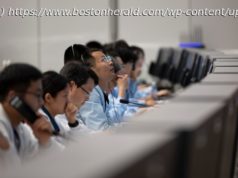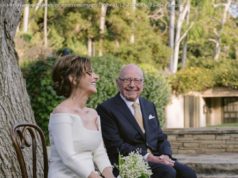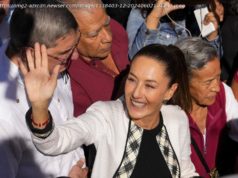Charles Darwin’s theory of evolution. Stephen Hawking on the Big Bang. Millions of students for civil rights and against the Vietnam War.
Charles Darwin’s theory of evolution. Stephen Hawking on the Big Bang. Millions of students for civil rights and against the Vietnam War.
They were provocative in their times, products of an ideal that holds universities as sacrosanct spaces for debate, innovation — and even revolution. But Hamas’ deadly Oct. 7 attack on Israel and the resulting war in Gaza are testing that perception, as anger over the brutal military campaign collides with election-yearpolitics and concerns about antisemitism in places where freedom of expression is supposed to rule.
“Where there is much desire to learn, there of necessity will be much arguing, much writing, many opinions; for opinion in good men is but knowledge in the making,” wrote poet John Milton, an alumnus of Cambridge University, in his 1644 treatise against censorship in publishing. “Give me the liberty to know, to utter, and to argue freely according to conscience, above all liberties.”
That lofty principle has clashed with the stark reality of the Israel-Hamas war. Hamas militants who crossed the border killed about 1,200 people and took about 250 hostage. Israel’s drive to root out Hamas has killed more than 35,000 people in Gaza, according to the local health ministry, and left millions on the edge of famine.
Administrators on some campuses have called in local police to break up pro-Palestinian protesters demanding that their schools divest from Israel in demonstrations that Israel’s allies say are antisemitic and make campuses unsafe. From Columbia University in New York to the University of California, Los Angeles, thousands of students and faculty have been arrested in the past month.
“Columbia,” read one sign held aloft there after arrests on April 30, “Protect your students (Cops don’t protect us).”
Historically, universities are supposed to govern — and police — themselves in exchange for their status as “something of a secular sacred ground,” said John Thelin, University of Kentucky College of Education professor emeritus and a historian of higher education.
“One has to think of an American college or university as a ‘city-state’ in which its legal protections and walls include the campus — grounds, buildings, structures facilities — as legally protected, along with a university’s rights to confer degrees,” he added in an email.
Домой
United States
USA — Science The Israel-Hamas war is testing whether campuses are sacrosanct places for speech...






